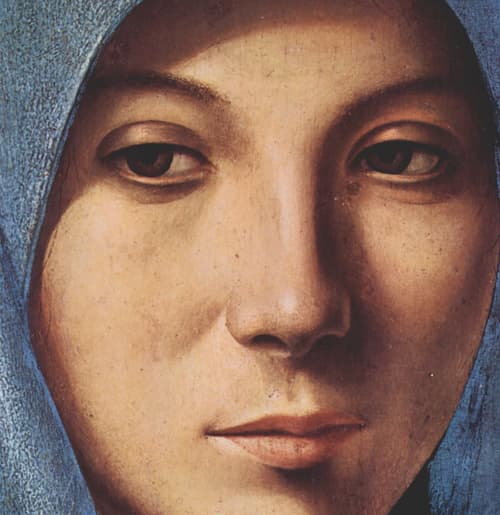The Confessions of X, Suzanne Wolfe (Thomas Nelson, 2016).
The domestic details of great saints’ lives, until the modern era at least, have rarely been at the forefront of hagiographers’ pens. Saint Augustine of Hippo was one of the most prolific theologians of all time, as well as a Father of the Church. But little is known about the woman with whom he shared a home for over a decade of his youthful life. She is regarded as the object of that famous line “make me chaste, but not yet”, and little else.
For this reason, a cramped and prurient portrayal of Augustine has been at once promoted by moralists and reviled by feminists. Neither do justice to the man himself, nor to his thought. Far less to the mysterious woman to whom he refers in his Confessions: the woman he had loved since he was seventeen years old, who lived with him as his concubine, and bore him a son whose name expressed the very love which brought him into being: Adeodatus—gift of God. All we know from the Confessions is that this nameless woman was ‘put away’ by Augustine when he was thirty-one. It was a profoundly painful parting: “My heart, which was deeply attached, was cut and wounded, and left a trail of blood,” he wrote. It is this trail that Suzanne Wolfe follows in her award-winning novel The Confessions of X.
First a word of warning. The combination of the title (which makes perfect sense if you are able to reference the ‘confession of faith’ of Augustine’s own autobiography), and the cover illustration may put you off. Don’t be. This is a beautiful piece of Christian literature. I can see why the publishers packaged it this way, though they may have fallen between two stools, as I have not seen it in a single supermarket or airport bookshop: would that it could reach that market, as it is far more edifying than Left Behind!
The un-named narrator of the novel is a low-born girl from Carthage, the daughter of a widowed mosaic-layer who drinks himself to an early death, leaving her in the keeping of her Christian aunt. Unwilling to be married off to an older man of her aunt’s choice, she chooses to accept the proposal of a brilliant young student from a well-born family with whom she has fallen in love: to be his concubine, rather than his wife, since her social status will not permit him to present her to his family as anything else. It is in effect a common-law marriage, common between people of different classes in classical times. X gives herself completely to Augustine, and when she parts from him, she gives herself to no one else. Only the protection of the childhood friend who introduced them in the first place allows her to live without compromising on this.
In this, her second novel, Wolfe has created a tightly-woven narrative which is at once about human love and philosophical striving. More than this: she has portrayed things which help to convey what made Augustine the man he became. The devotion between the couple, even when living in materially restricted circumstances, the appreciation of the small delights of everyday life, the way they interact with those who live at close quarters with them: all of it is beautifully executed. Here, as well as in their much-loved child, the fecundity of conjugal life is evident. This is no simple love-story: it is a great, historic passion played out against a fascinating (and well researched) social backdrop.
One of the most beautiful pieces of characterisation in The Confessions of X is Saint Monica. Augustine’s mother is not painted, as you might expect, as a possessive, disapproving matriarch. She is portrayed, quite simply, as a saint. A woman capable of perceiving the noble qualities of her son’s chosen companion, and struck to the heart by foreknowledge of what must come to pass. Interestingly, Wolfe does not lay the parting of the couple at Monica’s door. She gives full moral autonomy to her heroine, as is both fit and, in fact, quite logical.
The story is of course a deeply tragic one. It is also ‘pre-Christian’ in that we do not witness Augustine’s conversion directly (since it is written from the point of view of X alone). Similarly we do not hear that the woman he loved followed him into the Church. We leave her at the moment of Augustine’s death, at his side for a final parting after the long sacrifice of many years, and able only to express the griefs of her life. Wolfe respects this and draws a veil.
But through this great love-story, re-imagined on the back of the known facts, we are given a crucial insight into the difference between the Manichean mind-set, which held Augustine in thrall during his youth, and the richly incarnational, anti-dualistic reality that eventually swept all before it. Not for nothing does this reality have for its fictional advocate an uneducated, but far from foolish woman, who makes such a radical gift of herself. All of these components give us, in turn, a piece of literature which truly conveys what steadfast human love is all about. A love that reflects the divine, and gives birth to the whole range of vocations, from nuptial to celibate, that in turn nourish the Church.
Leonie Caldecott is the UK editor of Humanum.
